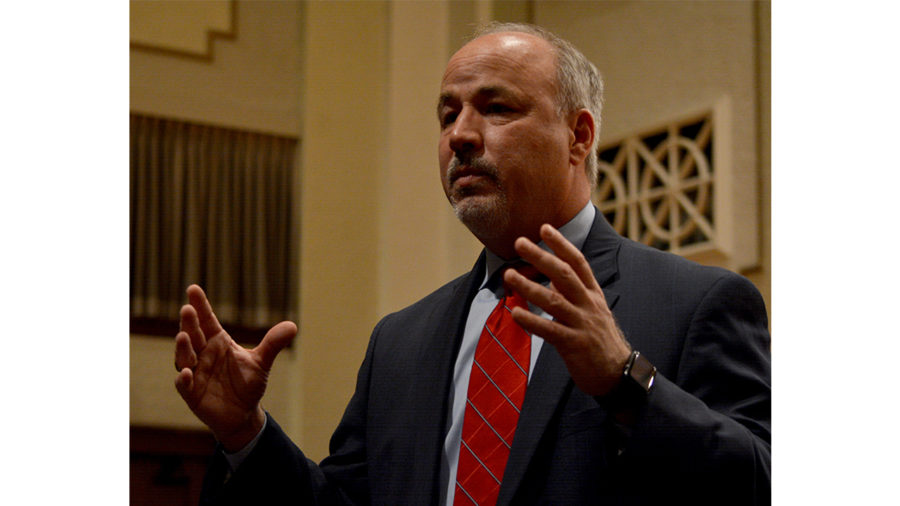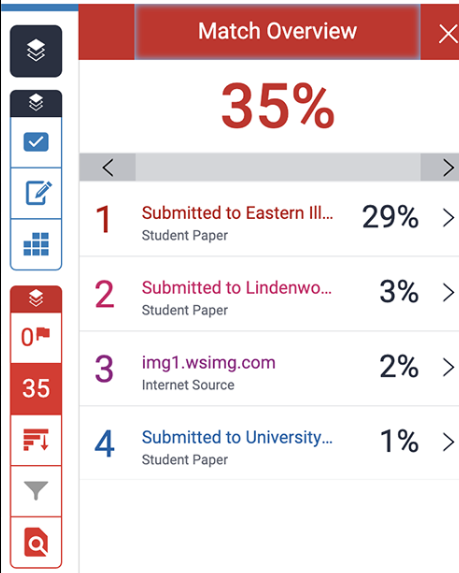On Dec. 12, Provost and Senior Vice President for Academic Affairs Steven Moser held the first of three university-wide faculty meetings in Bennett Auditorium to discuss a request for proposals aimed to explore opportunities to restructure The University of Southern Mississippi’s academic degree programs.
The Office of the Provost’s request for proposals, known as the Plan for Academic Reorganization, is intended to boost enrollment, create greater institutional efficiencies through administrative restructuring and encourage collaboration of faculty research and teaching. The initial plan includes consolidating and thus streamlining the university’s smaller degree programs.
Moser said there is no pre-determined plan and that proposals are subject to development following governance body evaluation processes.
“We are not unique,” Moser said. “This is happening across the United States. In our work in admissions, recruiting, student success and online education, we’ve had to make tough choices around what we could do well and what we could no longer afford to do in terms of institutional priorities. We need to engage in similar conversations across departments and colleges.”
Moser said one goal of the process is to realize costs savings through more efficient administrative structures while building new revenue through enrollment growth as a way to invest in faculty and programs.
“This review process is an opportunity [for the campus community] to help build solutions for the long-term stability of the institution,” Moser said. “[Our challenges] are magnified by the fact that we have too many silos around campus working independently of one another. As one example, the fact that we have researchers who are working on similar areas of expertise across multiple disciplines that do not connect is problematic.”
According to Moser, the Plan for Academic Reorganization is not only about reducing expenses.
“The proposal is about leveraging institutional strengths so that we can perhaps grow a research portfolio that has a dramatic immediate impact, and that we can collaborate across our program delivery in better ways,” Moser said. “In a lot of conversations I’ve had over the last week, there is an expectation that a very simple answer can be found to a very complex series of issues before us. I am not sure there is. But what I do know is that those best practices working at other institutions have resulted in growth in enrollment and expansion of institutional profile.”
Moser said enacting the proposal is a question of fitting underperforming programs into similar areas of study as opposed to cutting them altogether.
“Some disciplines are what they are,” Moser said. “Many disciplines evolve. Creating a structure that allows us to be able to adapt quickly in areas where it’s appropriate to do so, I think, is important. What we’re not going to do is engage in a lot of conversation that takes us nowhere.”
In a recent Printz op-ed, USM Department of History professor Douglas Chambers wrote that this is not the administration’s first attempt at restructuring the university.
Much of this constant tinkering and disruption reflects two true challenges,” Chambers wrote. “The first is that the State of Mississippi continues to cut its part of our institutional funding, for whatever reasons. The second is that this university has never figured out how to compete for the declining number of potential college students in this state, which is a failure of the Office of Admissions, not of the faculty.”
More information on the Plan for Academic Reorganization can be found at usm.edu/provost.































